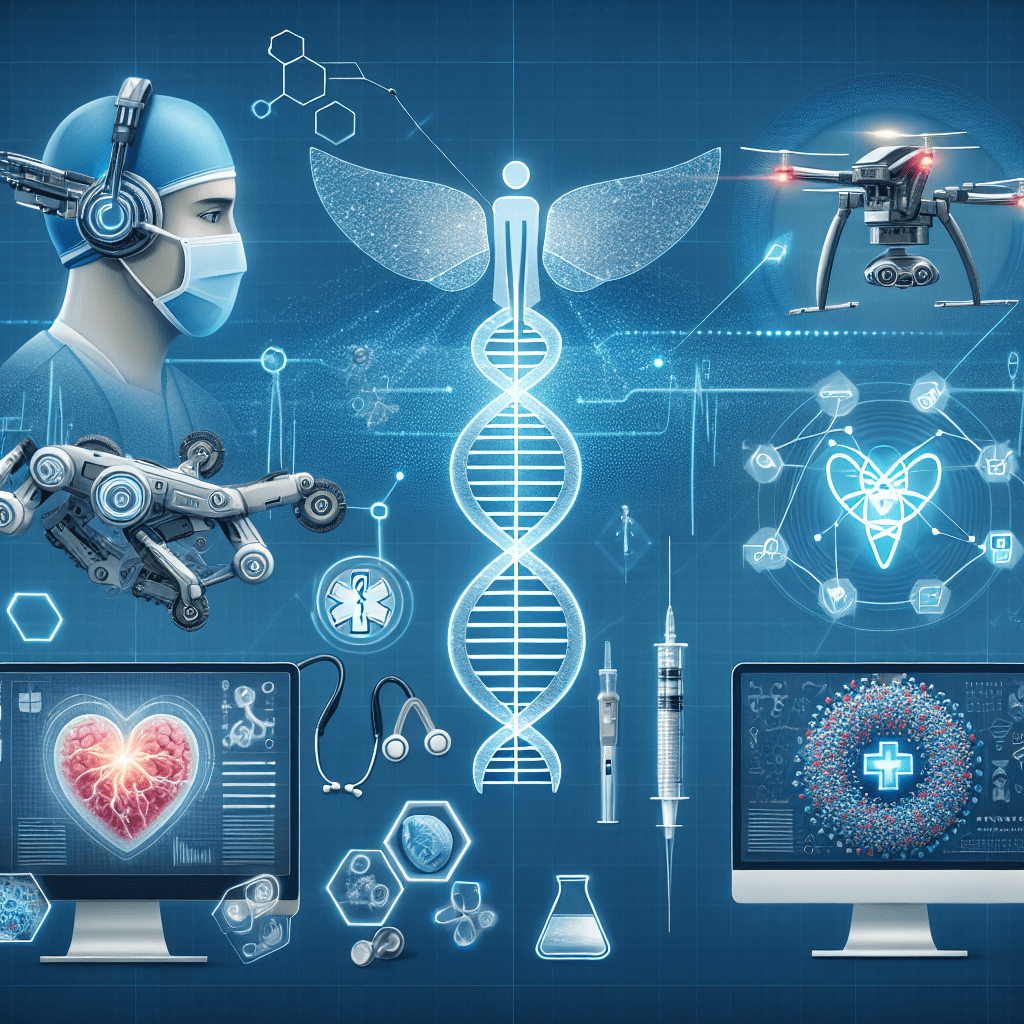Artificial Intelligence (AI) is revolutionizing the healthcare industry in many ways. From improving patient outcomes to streamlining administrative tasks, AI is making a significant impact on the way healthcare is delivered. In this article, we will explore five ways AI is enhancing healthcare.
1. Diagnostics and Imaging
AI has the ability to analyze large amounts of medical data at a speed and accuracy that surpasses human capabilities. This is particularly valuable in diagnostics and imaging, where AI can help identify patterns and anomalies in medical images such as X-rays, MRIs, and CT scans. By assisting healthcare professionals in diagnosing diseases and conditions earlier, AI can lead to better treatment outcomes and ultimately save lives.
2. Personalized Treatment Plans
AI algorithms can analyze an individual’s genetic makeup, medical history, and lifestyle factors to create personalized treatment plans. This level of customization can lead to more effective treatments with fewer side effects. AI-powered tools can also predict how patients will respond to certain medications, helping healthcare providers choose the best course of action for each patient.
3. Remote Monitoring and Telehealth
AI is playing a crucial role in remote monitoring and telehealth services, allowing patients to receive quality care from the comfort of their homes. AI-powered devices can monitor vital signs, track medication adherence, and alert healthcare providers to any changes in a patient’s condition. This not only improves patient convenience but also enables healthcare providers to intervene earlier in case of emergencies.
4. Administrative Efficiency
AI is streamlining administrative tasks in healthcare, such as appointment scheduling, billing, and medical record management. AI-powered chatbots can handle patient inquiries and appointment bookings, freeing up healthcare staff to focus on patient care. AI can also analyze large sets of data to identify patterns and trends, helping healthcare organizations make informed decisions to improve operational efficiency.
5. Drug Discovery and Development
AI is accelerating the drug discovery and development process by analyzing vast amounts of biomedical data to identify potential drug candidates. AI algorithms can predict how drugs will interact with the human body, speeding up the process of identifying safe and effective treatments. This has the potential to revolutionize the pharmaceutical industry and bring new therapies to market faster than ever before.
Conclusion
AI is transforming healthcare in numerous ways, from improving diagnostics and personalized treatments to streamlining administrative tasks and accelerating drug discovery. As AI technologies continue to advance, we can expect even greater innovations in healthcare that will ultimately benefit patients and healthcare providers alike.
FAQs
Q: Is AI replacing healthcare professionals?
A: While AI is enhancing healthcare in many ways, it is not replacing healthcare professionals. Instead, AI is augmenting healthcare professionals’ capabilities by providing valuable insights and assistance in diagnosis, treatment planning, and administrative tasks.
Q: Is AI secure in healthcare settings?
A: Healthcare organizations are taking steps to ensure the security and privacy of AI technologies in healthcare settings. This includes implementing robust data encryption measures, strict access controls, and regular security audits to protect patient data and comply with regulations.
Q: How can healthcare providers implement AI technologies?
A: Healthcare providers can implement AI technologies through partnerships with AI companies, investing in AI training for their staff, and integrating AI-powered tools into their existing systems. It is important for healthcare providers to collaborate with AI experts to ensure successful implementation and maximize the benefits of AI in healthcare.
Quotes
“AI has the potential to revolutionize healthcare by improving diagnosis accuracy, personalizing treatment plans, and streamlining administrative processes.” – Dr. Emily Chang, Chief Medical Officer
#Ways #Enhancing #Healthcare


